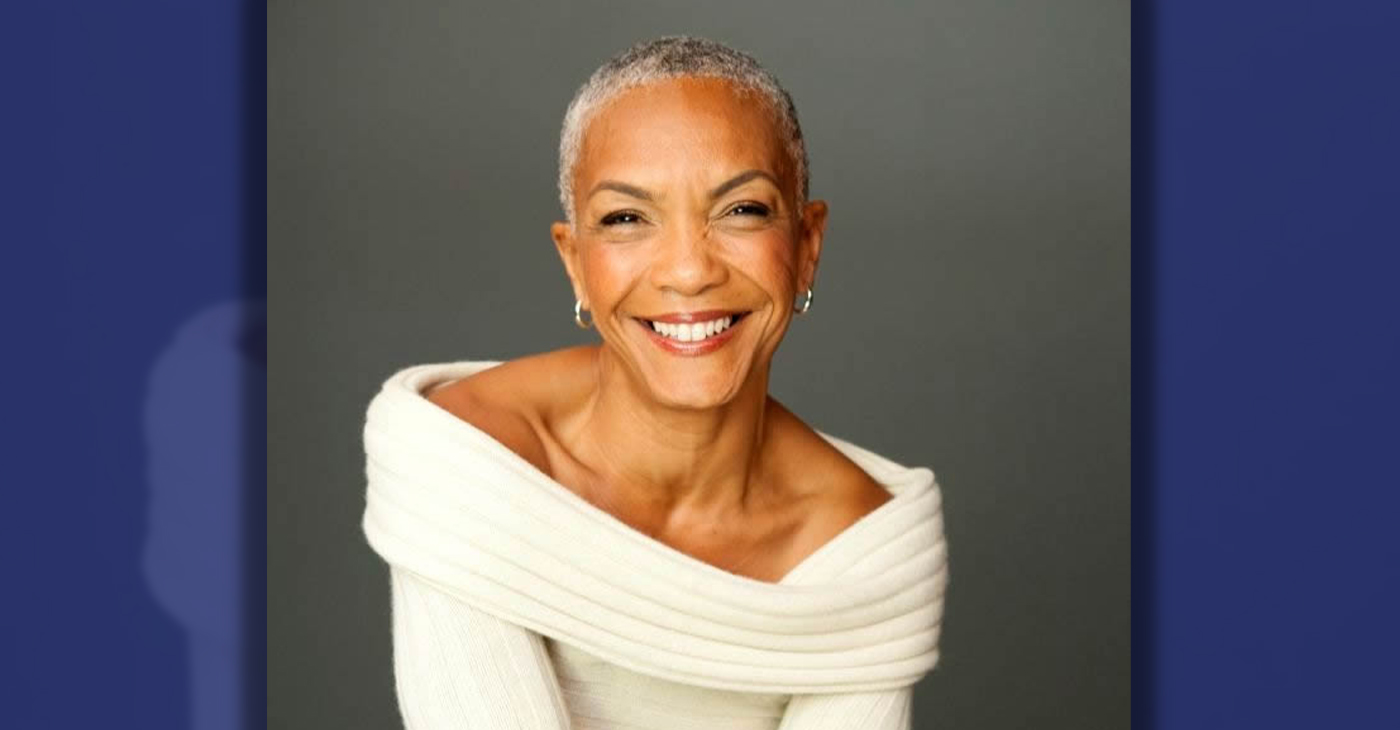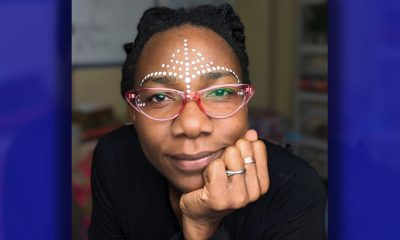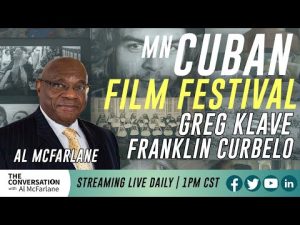Health
America’s Nutrition Coach: Where Diet and Nutrition Intersect
By Dr. Ro
NNPA Columnist
I get lots of questions about what, when, and how much food to eat in order to achieve a healthy lifestyle. As your nutrition coach, I know that even with a balanced diet and your meals planned for the week, you sometimes need a little extra support. Enter nutrient supplementation. This is where dietary “rubber” meets the nutritional road.
At this point, nutritional supplements take on the role of bit players to your healthy diet. With a lifestyle of constant motion and the on-the-go demands on your busy schedule you may feel the need to grab food wherever you can get it, including the fast food lane. I get that this is a real-life experience for many of you, even your best intentions may result in missed meals or worse yet, incomplete or inadequate nutritional support. For this reason, I generally recommend taking a multivitamin with antioxidants, calcium and iron (for women of child bearing-age) as an insurance policy to protect against poor food choices.
So why is this important to you? African Americans suffer from type 2 diabetes, hypertension, obesity, and conditions such as lactose intolerance, at disproportionate rates, compared to other groups, and therefor may benefit from supplements along with the inclusion of specific foods to prevent or treat these illnesses.
The first line of defense for nutrition should always be food, but because many people fall short, supplementing your balanced diet may be in order.
DISCLAIMER:
If you choose to take nutritional supplements, check with your doctor to confirm that they will not interfere with any medications you may be taking and do not exceed the recommended daily allowance of the nutrient.
Here is my short primer of nutrient supplements and the reasons they should matter to you:
Magnesium– needed for more than 300 biochemical reactions in the body, including a healthy immune system. This macro-mineral helps to maintain normal nerve and muscle function helps to keep your bones strong, protects the heart, helping it to beat steadily, regulates blood sugar levels, and steadies blood pressure.
These functions are especially important to African Americans who routinely have higher than average rates of type-2 diabetes, heart disease, and high-blood pressure. In fact, there is continued ongoing research underway on the role of magnesium in preventing and managing high blood pressure, heart disease, and diabetes disorders.
Dietary Reference Intakes (DRIs) for Magnesium:
Adult females: 310 – 320 milligrams/D
– Pregnancy: 350 – 400 milligrams/D
-Breastfeeding: 310 – 360 milligrams/D
Adult males: 400 – 420 milligrams
Your Food Rx for Magnesium:
Include more magnesium in your diet with dark, leafy green vegetables, and fruits: bananas, dried apricots, and avocado; include nuts: raw almonds, pine nuts, and cashews; peas , beans, seeds like pumpkin seeds, and legumes such as peanuts, and whole grains such as millet, and fish (think mackerel).
Calcium- needed not only healthy bones and teeth, but calcium may also be helpful in the prevention of heart disease and there is good evidence that calcium is also useful in the prevention an control hypertension, obesity and it helps protect against breast and colon cancer, all diseases and conditions with which African Americans struggle at greater, often 2 or 3 times the rate of white Americans.
Adequate Intakes (AI) for Calcium from food:
Adults 18 years: 1,300 mg/D
Adult Women: 19-50+ years: 1,000 mg/D
Adult Men: 50+: 1,200 mg/D
Tolerable Upper Limits (UL) for Calcium from Supplements:
Adults and Children at leas 1yr. old: 2,500 mg/D
* Take calcium supplements with food and break into 500 mg doses for best absorption.
Your Food Rx for Calcium:
Include more low-fat milk, cheese, yogurt, broccoli, kale, bok choy, calcium-fortified juices
Vitamin D- needed for bone health, a healthy immune system, even fighting depression. Its primary source is the sun, but there are a few foods that provide good amounts of vitamin D as well. Most people in the U.S. are known to have sufficient vitamin D, but studies show that African Americans have lower blood levels of vitamin D compared to other groups. The latest NHANES –III data found that 54%-76% blacks in the southern region of the U.S. had low blood levels of Vitamin D compared to 8%-33% of whites. One reason that may explain the disparity in part is the fact that melanin, responsible for our skin pigmentation reduces vitamin D production in the skin. But another reason has everything to do with diet. From puberty well into adulthood, black people are well below the recommended vitamin D intake at every age group. This is probably related to the problem or in some cases, the perception and self-diagnosis of lactose intolerance, an issue easily rectified with lactose-free milk, or lactaid capsules (taken with meals and before consuming dairy products).
Recommended Dietary Allowances (RDAs) for Vitamin D:
Adults up to 70: 600 IU/D
Adults 70+ years old: 800 IU/D
Your Food Rx for Vitamin D:
Include more low-fat milk and cheese in your diet. If you are lactose intolerant or have dairy allergies, try and vitamin D-fortified nut milks such as almond and cashew, or coconut milk. Other options are canned salmon with bones, packed in oil, canned tuna in water, mackerel, cod liver oil (generally 1 tsp/D) , beef, egg yolks, and calves liver.
Rovenia Brock, Ph.D. is a medical advisory board member and contributor to the “Dr. Oz Show,” where she helped more than a half-million Americans lose more than 5 million pounds. She is the author of “Dr. Ro’s Ten Secrets To Livin’ Healthy (Bantam). For more health, nutrition, and fitness tips, join Dr. Ro and her social media community and get a FREE Download of her new eBook of super-easy tips, “You Healthy and Happy” at www.everythingro.com.
###
Business
Banning Menthol Cigarettes: California-Based Advocacy Group Joins Suit Against Federal Govt.
A California based non-governmental organization, The African American Tobacco Control Leadership Council (AATCLC), has joined two other public health advocacy groups in a second lawsuit against the U.S. Food and Drug Administration (FDA) for the agency’s inaction on issuing a final rule banning menthol cigarettes.

By Edward Henderson, California Black Media
A California based non-governmental organization, The African American Tobacco Control Leadership Council (AATCLC), has joined two other public health advocacy groups in a second lawsuit against the U.S. Food and Drug Administration (FDA) for the agency’s inaction on issuing a final rule banning menthol cigarettes.
The suit, filed by Christopher Leung of Leung Law, PLLC on behalf of the AATCLC, Action on Smoking and Health (ASH) and the National Medical Association (NMA) comes more than seven months after the FDA’s established date for finalizing a new rule against menthol cigarettes.
“We are a group of Californians, although we have expanded now. We were formed in 2008 to inform and direct the activities of commercial tobacco control and prevention as they affect African Americans and African immigrants in this country,” said Carol McGruder, co-chair of the AATCLC.
McGruder was speaking during a press briefing April 2 organized to announce the lawsuit. with representatives from the ASH, NMA and other organizations.
“Menthol cigarettes have had a devastating and disproportionate impact on the health of Black Americans,” said Yolanda Lawson, President of the NMA. “Smoking related diseases are the number one cause of death in the Black community.”
The lawsuit also follows the FDA’s 15-year delay in creating national policy that would ban cigarettes made with compound menthol, a minty substance that cigarette makers infuse into their tobacco products, making them more addictive and harmful.
Despite significant reductions in overall smoking rates in the US, smoking among poor, less educated and marginalized groups remains high. Every year, 45,000 Black Americans prematurely die from tobacco-caused diseases. An estimated 85% of them smoked menthol cigarettes.
“This disproportionate use of menthol cigarettes among Black Americans is not a coincidence,” Dr. Yerger continued. “I was one of the first tobacco documents researchers out of UCSF who exposed the tobacco industry’s systematic, predatory marketing schemes to dump highly concentrated menthol cigarette marketing into urban inner-city areas.”
In 2011, the FDA’s own scientific advisory committee concluded that the “Removal of menthol cigarettes from the marketplace would benefit public health in the United States.”
If the sale of menthol-flavored cigarettes is indeed banned, the FDA projects a 15.1% drop in smoking within 40 years, which would help save between 324,000 to 654,000 lives.
As a result of the Plaintiffs’ first lawsuit, the FDA made the landmark determination to add menthol to the list of banned characterizing flavors in cigarettes.
On the contrary, tobacco-aligned groups in the past have argued that banning menthol cigarettes would be impact federal and state budgets with the loss of nearly $6.6 billion in cigarette sales taxes. Menthol cigarettes account for over one-third of the U.S. cigarette market.
Other arguments from tobacco-backed groups include unintended consequences of a ban such as increased policing in Black and Brown communities due to contraband cigarettes. However, health advocates have dismissed this claim stating the ban would apply to companies that make or sell menthol cigarettes, not individual smokers.
By law, the United States has two months to respond to the lawsuit. The feds can respond to it or file a motion to dismiss.
If the suit is successful, the FDA would have 90 days to make a final ruling.
California Black Media
Commentary: Support Early Detection Technology to Save the Lives of Black Cancer Patients
In 2008, I received news no one ever wants to hear. I was diagnosed with Stage I breast cancer, with an ER/PR positive tumor type. The road to recovery was tough, taking more than a physical toll on my body. I grappled with the emotional and mental strain of navigating a health care system that too often fails to address the unique needs of Black women. There was no manual to guide me through this journey, no prescription to ease the burden, and no roadmap to help me navigate the challenges ahead.

By Rhonda Smith, Special to California Black Media Partners
In 2008, I received news no one ever wants to hear. I was diagnosed with Stage I breast cancer, with an ER/PR positive tumor type.
The road to recovery was tough, taking more than a physical toll on my body. I grappled with the emotional and mental strain of navigating a health care system that too often fails to address the unique needs of Black women. There was no manual to guide me through this journey, no prescription to ease the burden, and no roadmap to help me navigate the challenges ahead.
The stark reality that Black women are 41% more likely to die from breast cancer than White women is a grim reminder of the systemic inequities that pervade our health care system. According to the American Cancer Society, Black Americans have the highest death rate and shortest survival rate of any racial or ethnic group in the country. This disparity extends beyond breast cancer, impacting colorectal, prostate, and lung cancers, among others.
To help overcome these inequities, we need to attack cancer at its roots; we must catch it early, and we must ensure the means to catch cancer early are accessible to the communities most at risk. I consider myself fortunate to have received a Stage 1 diagnosis. Yet, it pains me to know that for many others, their breast cancer is often detected in later, more advanced stages.
Fortunately, there is hope on the horizon. Some California congressmembers — particularly U.S. Rep. Raul Ruiz (D-CA-25) — are taking decisive action. Ruiz is a lead sponsor of a bill to dramatically expand access to cutting-edge early detection tools for Medicare beneficiaries, including millions of Black Americans in underserved communities. With bipartisan support, this bill is closer than ever to passage.
Named in honor of Nancy Gardner Sewell, a civil rights leader and passionate advocate for health justice, the Nancy Gardner Sewell Medicare Multi-Cancer Early Detection Screening Coverage Act would ensure Medicare has the latitude it needs to cover an exciting new class of cancer detection tests as soon as they’re cleared by the FDA.
These tests utilize the latest scientific achievements to identify cancer signals in a patient’s blood stream. They can pinpoint many different types of cancer from a single blood draw, dramatically improving doctors’ ability to detect cancers early and at stages where they are most treatable.
The next phase of our fight against cancer – and the disproportionate toll it takes on Black Americans – starts by urging Congress to pass the Nancy Gardner Sewell Medicare Multi-Cancer Early Detection Screening Coverage Act and ensuring the benefits of this legislation reach all corners of our communities.
I don’t advocate for change for myself, but for every Black woman who has faced, or will face, a similar battle.
Together, we can rewrite the narrative of health care, catch and treat cancer early, and ensure that every woman has the opportunity to thrive, regardless of her race or background.
About the Author
Rhonda Smith, Executive Director of the California Black Health Network, leads initiatives to advance health equity for Black Californians, leveraging her expertise from roles including consulting and spearheading health disparities initiatives for BIPOC communities. With an MBA from the University of Virginia’s Darden School of Business and a B.S. in Civil Engineering from Virginia Tech, Rhonda has led transformative projects like the LiveHealthy OC Initiative and the Susan G. Komen® Circle of Promise California Initiative to address health disparities and promote whole person care approaches.
Bay Area
California Makes Strides in Fight Against Fentanyl
California National Guard’s Counterdrug Task Force has seized over 7,000 pounds of fentanyl including 3.4 million pills since the state launched a multi-agency operation in January 2024. Gov. Gavin Newsom announced the state’s progress on May 7, National Fentanyl Awareness Day. The Governor said he deployed the state’s highway patrol and National Guard personnel last year as part of a public safety operation in partnership with local government officials and law enforcement.

By California Black Media
California National Guard’s Counterdrug Task Force has seized over 7,000 pounds of fentanyl including 3.4 million pills since the state launched a multi-agency operation in January 2024.
Gov. Gavin Newsom announced the state’s progress on May 7, National Fentanyl Awareness Day.
The Governor said he deployed the state’s highway patrol and National Guard personnel last year as part of a public safety operation in partnership with local government officials and law enforcement.
“As we recognize the serious dangers of illegal fentanyl, California is continuing to tackle this issue head-on. Our efforts are getting this poison off our streets and out of our communities as we continue to support people struggling with substance use.” Newsom said.
CalGuard Major General Matthew Beevers said that the state’s unprecedented investment in the Counterdrug Task Force has immobilized operations and revenue channels of transnational criminal organizations.
“The CalGuard is committed to supporting our state, federal, local and tribal law enforcement partners to eliminate the scourge of fentanyl,” Beevers said.
In the past five years, California has invested $1.1 billion in operations and initiatives to fight crime, support local law enforcement, and improve public safety. The Newsom administration has implemented a comprehensive approach as part of the governor’s Master Plan to tackle the fentanyl and opioid crisis.
The Newsom administration has expanded efforts to improve public safety across the state where operations occurred in cities such as San Francisco, Oakland, and Bakersfield.
San Francisco Mayor London Breed acknowledged that joint operation was a step in the right direction toward curbing illegal activity and improving public safety.
“Our coordinated work to shut down drug markets in San Francisco is making a difference, but we have more work to do,” Breed said.
“Together we are sending a message at all levels of government that anyone selling fentanyl in this city will be arrested and prosecuted,” she said.
-

 City Government3 weeks ago
City Government3 weeks agoCourt Throws Out Law That Allowed Californians to Build Duplexes, Triplexes and RDUs on Their Properties
-

 Activism4 weeks ago
Activism4 weeks agoOakland Post: Week of April 24 – 30, 2024
-

 Activism3 weeks ago
Activism3 weeks agoS.F. Black Leaders Rally to Protest, Discuss ‘Epidemic’ of Racial Slurs Against Black Students in SF Public School System
-

 Alameda County3 weeks ago
Alameda County3 weeks agoAn Oakland Homeless Shelter Is Showing How a Housing and Healthcare First Approach Can Work: Part 1
-

 Community3 weeks ago
Community3 weeks agoGov. Newsom, Attorney General Bonta Back Bill to Allow California to Host Arizona Abortion Care
-

 Community3 weeks ago
Community3 weeks agoOpening Soon: Vibe Bistro Is Richmond’s New Hub for Coffee, Cuisine, Community and Culture
-

 Community3 weeks ago
Community3 weeks agoGov. Newsom Issues Proclamation Declaring Day of Remembrance for the Armenian Genocide
-

 Bay Area3 weeks ago
Bay Area3 weeks agoMayor Breed Proposes Waiving City Fees for Night Markets, Block Parties, Farmers’ Markets, Other Outdoor Community Events




























































